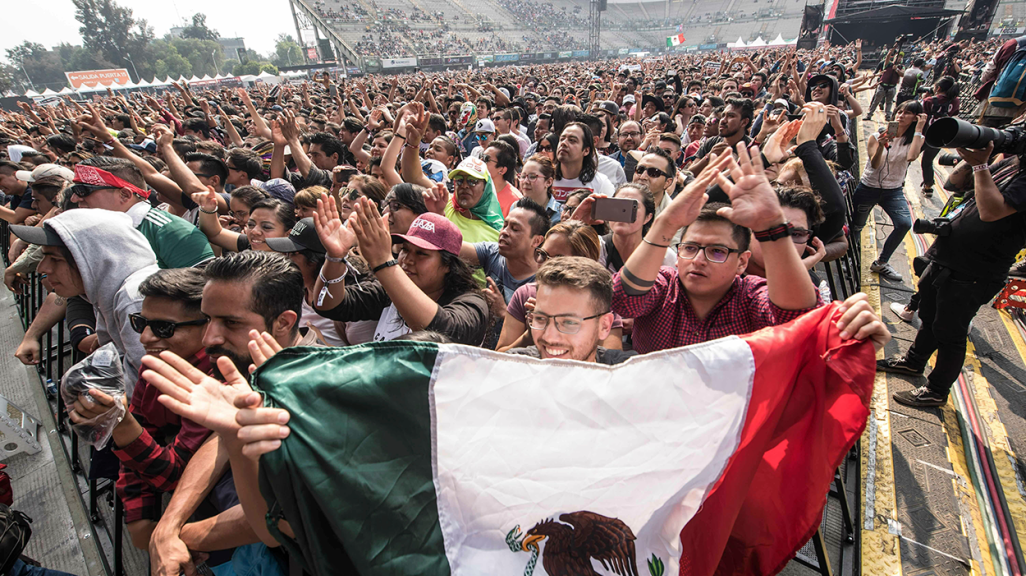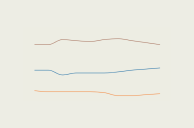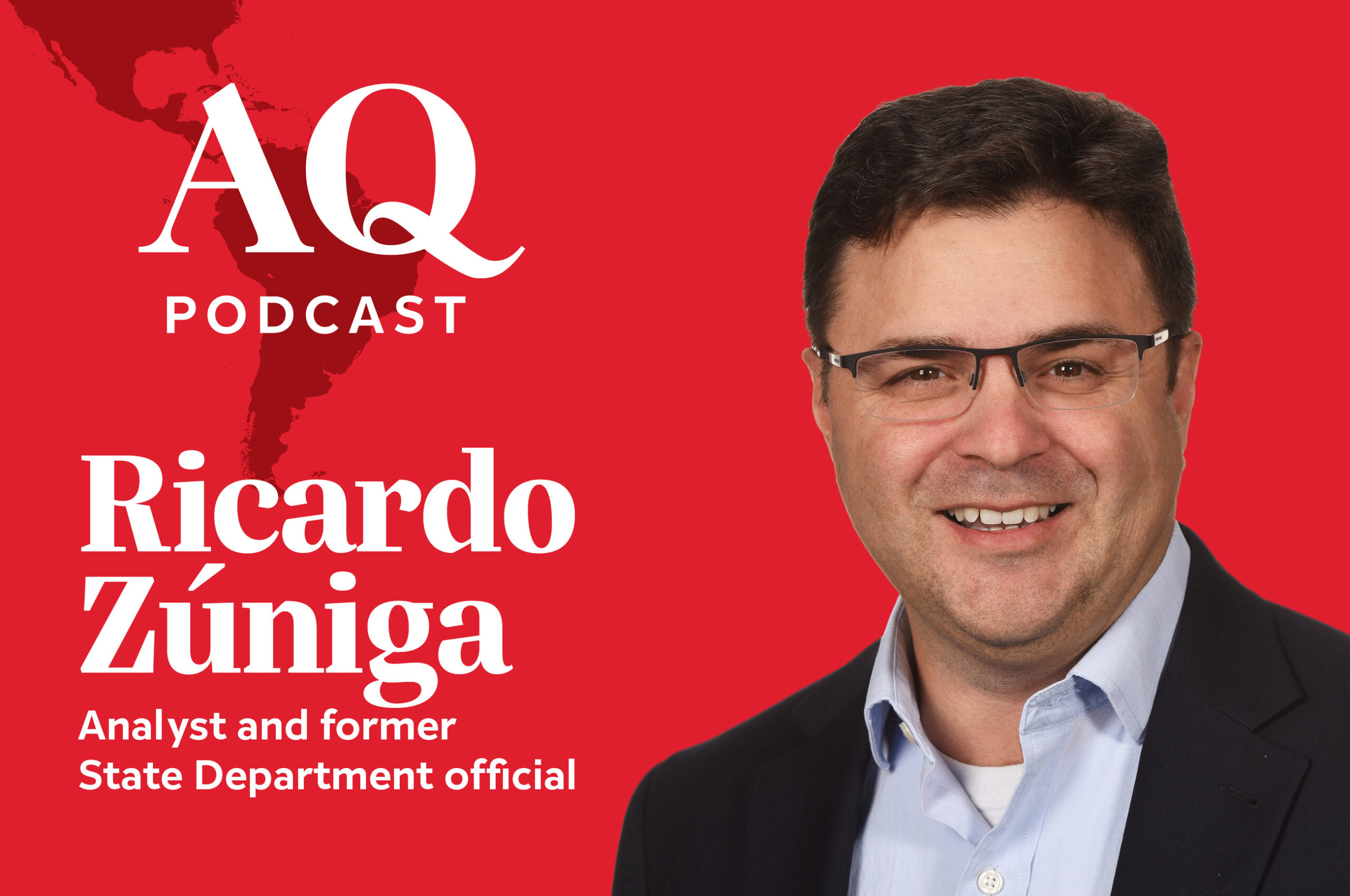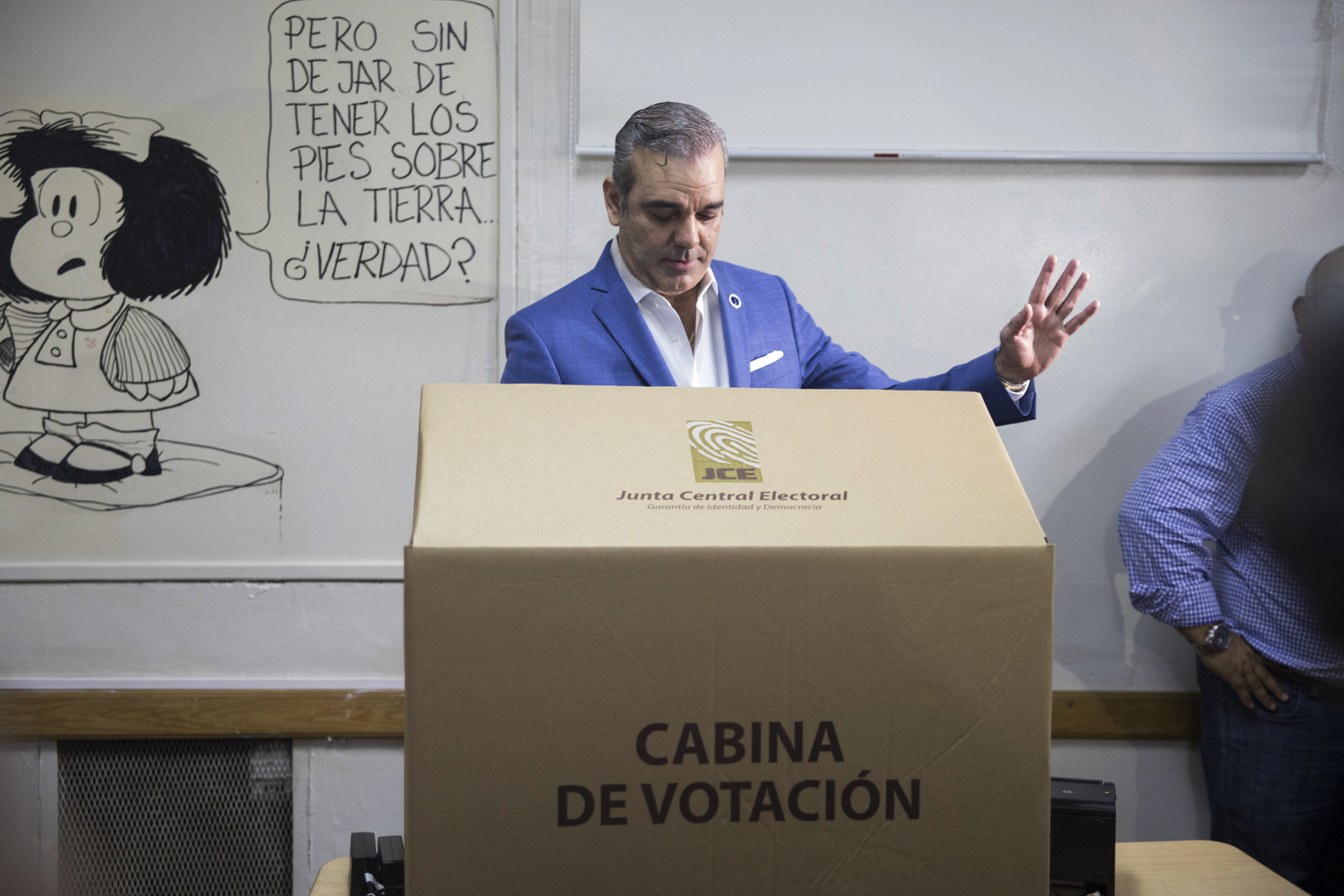LatAmFocus: As Mexico's Election Fires Up, a Look at Youth and Democracy
LatAmFocus: As Mexico's Election Fires Up, a Look at Youth and Democracy
Nearly half of Mexico’s voters are under 40. Me Veo’s Alexandra Zapata and LAPOP Lab’s Noam Lupu join our second 2024 election series episode.
Sometimes it feels like we keep hearing the same gloomy news. Study after study shows signs of declining support for democracy in Latin America as its citizens find themselves wooed by populists, frustrated with their economic prospects, and worn out by crime and violence. Just 41 percent of Latin Americans are satisfied with democracy, down 16 points from a little over a decade ago, according to the 2023 AmericasBarometer study.
When it comes to the region’s younger voters, the findings appear even more dire. Latin Americans under 36 are more likely to tolerate military coups and less likely to trust elections than older citizens. That’s set off alarm bells about the region’s long-term commitment to democracy.

But there may be reasons for hope. “It actually turns out that today's young generation is a little bit more committed to democracy than the youth of 20, 25, 30 years ago were when they were the same age,” says Associate Director of Vanderbilt University’s LAPOP Lab and Associate Professor of Political Science Noam Lupu. He is also editor of the 2023 AmericasBarometer report. While research often compares views of younger voters to those of older ones, the AmericasBarometer survey has been conducted biannually for nearly 20 years, allowingn for a comparison of young citizens’ views over time. The latest edition also finds that 18 to 25 years-olds are second only to respondents 66 and over when it comes to being satisfied with democracy.
In the case of Mexico, young voters are about to play a major role in charting the political future of their country, where there will be more than 20,000 seats up for grabs in June 2 elections. Campaigns officially kick off on March 1, and there are close to 48 million voters under 40, meaning nearly half of the country’s electorate. That’s more people than the entire population of any of the other five Latin American countries slated to hold presidential elections this year.

But they need to vote if they want to have an impact. Me Veo, an organization focused on getting out the vote in this election, is seeking to do just that. Alexandra Zapata, Me Veo’s director, told AS/COA Online’s Carin Zissis that one obstacle to getting younger generations to participate is that candidates target messaging to the older voters they think will show up. “I think what would be extraordinary—and the way we can increase voter participation in June of 2024—is if campaigns turn and look at young voters and what they're concerned about,” says Zapata.
This is the second episode in our special series focused on 2024 elections in Latin America. The first explored El Salvador’s expat votes and Nayib Bukele’s global reach.
Share and subscribe at Apple, Spotify, YouTube, or wherever you get your podcasts to catch future episodes. Is there a topic you’d like to see us cover? Send us feedback at latamfocus@as-coa.org.
Subscribe to Latin America in Focus, AS/COA's podcast focusing on the latest trends in politics, economics, and culture throughout the Americas.
Claudia Sheinbaum, Xóchitl Gálvez, and Jorge Álvarez Máynez are competing for the presidency. See polls ahead of the June 2, 2024 election.










